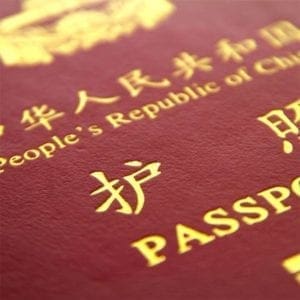 AccorHotels has published the findings from its first socio-economic footprint study. This study is embedded in the Group’s corporate social responsibility drive and its goal is to quantify and analyze its activity’s ripple effects throughout the worldwide and local economies. The findings from this impact map will help the Group to home in on more effective levers to:
AccorHotels has published the findings from its first socio-economic footprint study. This study is embedded in the Group’s corporate social responsibility drive and its goal is to quantify and analyze its activity’s ripple effects throughout the worldwide and local economies. The findings from this impact map will help the Group to home in on more effective levers to:
- Strengthen the positive impacts in the communities around its hotels
- Limit any negative impacts that may arise from its development.
Methodology
Utopies, a consulting firm that specializes in this field and developed the LOCAL FOOTPRINT modelling tool to estimate indirect and induced impacts in 186 countries and 25 business sectors, produced this report. EY, an independent expert, audited and certified it. It encompasses the Group’s 3,600 hotels (all management systems combined), is based on its 2013 financial statements, and looks at the three main financial flows from the Group into the economy, namely:
- Hotel expenditure (primarily purchases from suppliers)
- The wages that AccorHotels brand hotels pay their employees
- The taxes resulting from the Group’s activities.
The method used does not include the local expenditure of guests staying in the hotels.
Based on these flows, it quantifies three types of impacts:
- Direct: the value added by the Group and the presence of AccorHotels employees around the world
- Indirect: the economic ripple effects of its purchases, expenditure or investments;
- Induced: the activities supported by the wages and taxes paid by AccorHotels or its suppliers (household consumption and public spending).
The study is available for both the industry and the general public on Planet 21 Research, a shared knowledge platform on sustainable development.
Two key findings
1. AccorHotels sustains around 880,000 jobs (direct, indirect and induced)
Over and above the jobs revolving directly around its core business, the Group’s activity has created or supports some 700,000 indirect and induced jobs around the globe, in three main sectors:corporate services (laundry, cleaning, security), agriculture (as a result of its F&B activity) and public services (education, healthcare and transportation). Study findings suggest that every job created in an AccorHotels brand supports more than four other jobs around the world.
2. AccorHotels principally creates wealth in its host countries
The Group contributes €22 billion to world GDP, which is the equivalent of a country like Cyprus. This contribution encompasses the value added directly by the Group, plus the value generated by the activities of its suppliers, by household consumption and by public spending.<
The economic impacts from the Group’s activities correlate with its local presence. France, Germany, Australia, Great Britain and Brazil, for example, enjoy substantial portions of this wealth. This said, in emerging countries like India and Ivory Coast, where the Group has a smaller presence, a very large share of their contributions to GDP remains firmly rooted in the host country (close to 90%).
For example: One direct job created in France by AccorHotels sustains 1.2 additional indirect and induced jobs in the countries.
Through its almost 1,500 hotels and 34,000 people working for AccorHotels brands in France, the Group is creating or maintaining more than 130,000 jobs worldwide (including 30,000 indirect and 66,000 induced).
In France, about 40,000 indirect and induced jobs are sustained by the activity of AccorHotels France. According to the study, every €1.00 in revenue that AccorHotels generates in France contributes €1.52 to the country’s GDP, and France therefore represents over a quarter of the Group’s contribution to worldwide GDP (€22bn).
Outlook
This study underscores the fact that the Group’s value creation drive is firmly rooted in local communities, and that it thus needs to continuously step up its economic and social responsibility in its host countries. To that end, in 2014, AccorHotels updated its Ethics and Corporate Social Responsibility Charter and appointed a Committee to supervise observance and to enhance responsibility in the areas of management ethics, integrity and legal compliance.
This footprint also sheds light on the deep interconnections between the Group, its stakeholders and its host countries. AccorHotels’ role as business partner and customer entails substantial responsibility. This has led it to set up monitoring mechanisms throughout its value chain and, in particular, to develop joint innovation initiatives with its key partners in order to improve the sector’s practices. AccorHotels will use these findings to fine-tune the new chapter in PLANET 21, its sustainable development program, which it will be presenting next Spring.














